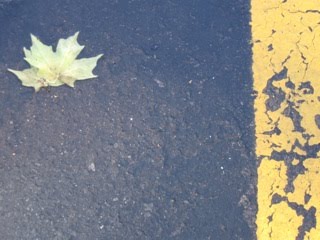One way of understanding "lineage" is "linkage" – that which links each of us to our true nature, to each other, to the teachings, to the succession of teachers and to primordial wisdom itself. – Richard Reoch
I recently read a paper by a psychologist named Lloyd deMause in which he talks about the neurotic and destructive tendency in abusive parents to use their children as “poison containers”, in other words, as vessels into which all of the unresolved psychic pain and neuroses of their childhoods are injected. The more I contemplate this, the stronger I feel that all parents are destined to do this to some extent or another, not just those who are abusive towards their children. We all have the tendency to respond to our children with the same neurosis that we learned from our families – and we will do so until we see this clearly, and are able to transform it. Not that our family neuroses are equivalent to abuse, but they certainly create suffering for others and ourselves. Why not stop the lineage of neuroses, and transform it into the lineage of wisdom and sanity?
Our parents are often the main, if not the only, parenting role models we have. They have the most success in continuing a lineage, or linkage as Richard Reoch defines it, of either neurosis or nurture that can be traced back for many generations. If we are not mindful in our parenting, we will find that those same habitual patterns will be inherited by our own children, and be carried on into future generations. How do we cultivate those karmic seeds in our own lineages that hold awakening and compassion rather than aggression and fear? I think this is one of our central tasks as parents. It all depends on what seeds we choose to water!
To have some choice over what family karma our children inherit from us, we must continue to create enough space in our own minds to be able to distinguish when we are acting out of the accumulated karma of our families of origin, and when we are actually making a choice and acting out of our basic goodness or wisdom. We often see this choice arise when we are under pressure, when our children manage to provoke us, or when we are not taking good enough care of ourselves and so get overtaken by exhaustion or resentment. In all of these scenarios, our automatic responses often get the better of us. And in my own experience, our automatic responses are often those inherited from our parents.
The more we are able to slow down our automatic responses, the more possibility we create for behaving in a different way. The more mindfulness we can cultivate through meditation, whether it is formal sitting practice or acting with intention throughout our day, the more space will occur for us, so that we will be able to see when we are about to react to something or someone else in a habitual way. At first, we won’t really notice until after the fact, in which case we can use theregret, remediate and refrain tool I blogged about before. But at least we notice. We can go through our entire lives without noticing when we have created suffering, although we won’t escape the residual pain it leaves in its wake. So just noticing when we have behaved automatically is a big, important first step.
The more mindfulness we create, the more we will be able to notice the habitual response while or even before it occurs. Once this begins to happen, we can begin to pause. We can just pause when we feel the energy arise in us that usually leads to harming ourselves or others. That pause begins to literally stop the momentum of karma, the flow of habitual poison cultivated for so many generations. Once that momentum is interrupted, we can touch in with our bodies. Where do we feel this energy of anger, of fear, of resentment, frustration, whatever? Is my chest tightening? Is my stomach cramping? Can I breathe? Touching into what is going on physically for us is a way to ground that energy, begin to work with it rather than being carried away by it. We can begin to notice what thoughts we are engaging in. Are these thoughts that reflect our basic goodness and that of our children? Or do these thoughts focus on what is “wrong” with ourselves, our children, the situation, etc? If it is the latter, we can choose to let go of those thoughts. We can choose not to believe them. We can stop writing the story that has been written for so many centuries in our families.
How then do we choose to react, to behave towards our children? The possibilities are endless. Maybe we can use a gentle but firm tone rather than shouting. Maybe we can leave the room until we feel calmer. Or we can choose to offer a consequence to our children for their behavior that we actually feel comfortable following through with, that is in proportion to what has occurred. We might even discover the most appropriate response is laughter, or a change of scene. We can begin to create enough space in our interactions for our children to see their own basic goodness, and be encouraged that, because it is who they truly are, they can act out of wisdom rather than out of their own fear or anger. This can create a dialogue of compassion between parent and child that will transform any poison into joy.
This is challenging work and it can feel uncomfortable at times. You are turning over ground that may not have been cultivated at all during many generations! I once went to a teaching by Pema Chodron


No comments:
Post a Comment